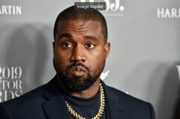Controversial artist loses Australia visa over offensive release: 'We have enough problems in this country already'
By
Gian T
- Replies 0
In a decision sparking global headlines, authorities have denied entry to a high-profile celebrity over a recent release that drew intense backlash for its offensive content.
The move has reignited the debate over free speech, public safety, and cultural responsibility.
Supporters and critics alike are watching closely to see how the controversy unfolds.
Home Affairs and Immigration Minister Tony Burke confirmed the decision in a recent interview with the ABC, explaining that the government is responsible for preventing the spread of hate speech and bigotry, especially from high-profile figures.
'Most of the visas that have been cancelled under this section have been where someone was seeking to make a public speech,' Burke said.
'The only one I can think of where it wasn’t for public advocacy, the visa, but we cancelled anyway, and that’d be Kanye West.'
Kanye, who has long been a magnet for controversy, has family ties to Australia through his wife, Bianca Censori, who is Australian.
He’s visited the country several times in the past, but this time, officials drew a line in the sand.
The release of 'Heil Hitler' on 8 May—coinciding with the 80th anniversary of the defeat of Nazi Germany—was the final straw.
The song’s music video has already been banned in Germany, and the backlash has been swift and severe.
Minister Burke made it clear that the decision wasn’t taken lightly.
'He’s been coming to Australia for a long time, he’s got family here, and he’s made a lot of offensive comments,' Burke said.
'But my officials looked at it again once he released the Heil Hitler song, and he no longer has a valid visa in Australia. It wasn’t a visa for the purpose of concerts. It was a lower level and the officials still looked at the law and said you’re going to have a song and promote that sort of Nazism, we don’t need that in Australia.'
When pressed by ABC host Patricia Karvelas about whether cancelling a celebrity’s visa over their views was a sustainable approach, Burke was firm:
'What’s not sustainable is to import hatred. Some people say, "Oh, don’t you believe in freedom of speech?" And for Australian citizens, yeah, you’ve got full freedom of speech, but we have enough problems in this country already without deliberately importing bigotry.'
Australia has a long-standing policy of refusing entry to individuals who promote hate speech, violence, or discrimination.
This isn’t the first time a celebrity has been denied entry for their views or actions—far from it.
In the past, figures like British conspiracy theorist David Icke and American right-wing commentator Milo Yiannopoulos have also been barred from entering Australia due to their controversial statements.
The government’s stance is clear: while freedom of speech is a valued right for Australian citizens, it doesn’t extend to foreign nationals seeking to enter the country.
The aim is to protect the community from imported hate and division, especially at a time when antisemitism and other forms of bigotry are on the rise globally.
Kanye West’s case also raises important questions about the responsibilities of artists and public figures.
While art has always pushed boundaries and challenged norms, there’s a line between provocation and outright promotion of hate.
Sampling a Hitler speech and titling a song 'Heil Hitler' is, for many, a step too far.
It’s also a reminder that actions have consequences—especially in a globalised world where what you say or do in one country can have repercussions in another.
For those with a platform, the responsibility to use it wisely has never been greater.
Minister Burke said that immigration officials would assess Kanye West's future application to have his visa reinstated, but for now, the ban stands.
It’s a strong message that Australia is not willing to tolerate the promotion of hate, no matter how famous the individual.
 Do you agree with the government’s decision to cancel Kanye West’s visa? Where should the line be drawn between freedom of speech and protecting the community from hate? Have you seen other examples of celebrities being banned from Australia for their views or actions? Share your thoughts in the comments below.
Do you agree with the government’s decision to cancel Kanye West’s visa? Where should the line be drawn between freedom of speech and protecting the community from hate? Have you seen other examples of celebrities being banned from Australia for their views or actions? Share your thoughts in the comments below.
Read more: 75-year-old's plea to stay in Australia is met with an unbelievable demand—find out why
The move has reignited the debate over free speech, public safety, and cultural responsibility.
Supporters and critics alike are watching closely to see how the controversy unfolds.
Home Affairs and Immigration Minister Tony Burke confirmed the decision in a recent interview with the ABC, explaining that the government is responsible for preventing the spread of hate speech and bigotry, especially from high-profile figures.
'Most of the visas that have been cancelled under this section have been where someone was seeking to make a public speech,' Burke said.
'The only one I can think of where it wasn’t for public advocacy, the visa, but we cancelled anyway, and that’d be Kanye West.'
Kanye, who has long been a magnet for controversy, has family ties to Australia through his wife, Bianca Censori, who is Australian.
He’s visited the country several times in the past, but this time, officials drew a line in the sand.
The release of 'Heil Hitler' on 8 May—coinciding with the 80th anniversary of the defeat of Nazi Germany—was the final straw.
The song’s music video has already been banned in Germany, and the backlash has been swift and severe.
Minister Burke made it clear that the decision wasn’t taken lightly.
'He’s been coming to Australia for a long time, he’s got family here, and he’s made a lot of offensive comments,' Burke said.
'But my officials looked at it again once he released the Heil Hitler song, and he no longer has a valid visa in Australia. It wasn’t a visa for the purpose of concerts. It was a lower level and the officials still looked at the law and said you’re going to have a song and promote that sort of Nazism, we don’t need that in Australia.'
'What’s not sustainable is to import hatred. Some people say, "Oh, don’t you believe in freedom of speech?" And for Australian citizens, yeah, you’ve got full freedom of speech, but we have enough problems in this country already without deliberately importing bigotry.'
Australia has a long-standing policy of refusing entry to individuals who promote hate speech, violence, or discrimination.
This isn’t the first time a celebrity has been denied entry for their views or actions—far from it.
In the past, figures like British conspiracy theorist David Icke and American right-wing commentator Milo Yiannopoulos have also been barred from entering Australia due to their controversial statements.
The aim is to protect the community from imported hate and division, especially at a time when antisemitism and other forms of bigotry are on the rise globally.
Kanye West’s case also raises important questions about the responsibilities of artists and public figures.
While art has always pushed boundaries and challenged norms, there’s a line between provocation and outright promotion of hate.
Sampling a Hitler speech and titling a song 'Heil Hitler' is, for many, a step too far.
For those with a platform, the responsibility to use it wisely has never been greater.
Minister Burke said that immigration officials would assess Kanye West's future application to have his visa reinstated, but for now, the ban stands.
It’s a strong message that Australia is not willing to tolerate the promotion of hate, no matter how famous the individual.
Key Takeaways
- The federal government has cancelled Kanye West’s Australian visa due to his song ‘Heil Hitler’, which promotes Nazism and includes a Hitler speech sample.
- Immigration Minister Tony Burke confirmed the decision, stating Australia does not need to import bigotry or hatred from international celebrities.
- Despite having family in Australia and a history of visits, West’s recent actions prompted officials to reassess and revoke his visa.
- Immigration authorities will scrutinise any future visa applications by Kanye West, and Australia remains firm on rejecting hate speech and antisemitism.
Read more: 75-year-old's plea to stay in Australia is met with an unbelievable demand—find out why








